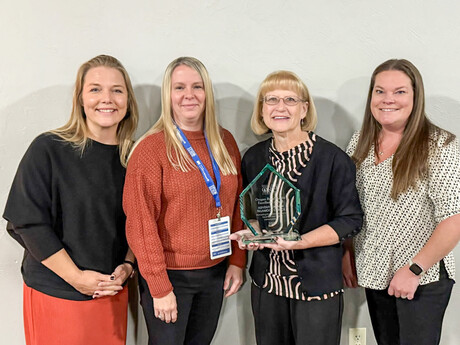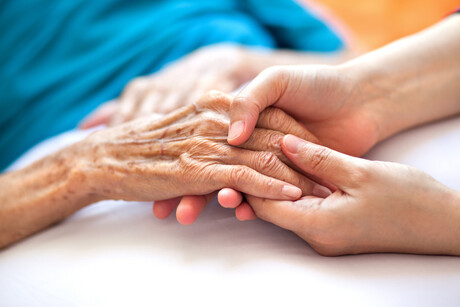“Seeing all students as family members, I call all my athletes my kids,” said Jessica Johnson, certified athletic trainer at Adventist Health Tillamook, about her work with the athletics program at Tillamook High School.
As an athletic trainer, Johnson works directly with high school student athletes before, during and after games to help prevent, diagnose, treat and rehabilitate injuries and illnesses. When seconds matter, Johnson is there on the playing field or court to identify injuries quickly.
Johnson also serves as a liaison between the high school and the hospital. If an athlete needs treatment or further evaluation, she facilitates appointments with healthcare providers, helping students recover and return to their sport as quickly and as safely as possible.
In her position as athletic trainer, Johnson has had an immeasurable impact on the Tillamook community and on the long-term health of the athletes she works with. Athletic trainers cover a wide range of sports, with particular attention given to activities where acute, overuse and contact injuries are the most prevalent and highest risk.
Athletic trainers are the only allied healthcare practitioners trained explicitly in injury prevention for the physically active, as well as patients of all ages, backgrounds and levels of activity. In the U.S., one in three public schools has no access to athletic trainers for high school athletes.
To support the health of the community, Adventist Health Tillamook provides a full-time athletic trainer and training room for students at Tillamook High School at no cost to the school district.
When Johnson isn’t on the field with student athletes, she supports the work of Brett LaFleur, orthopedic surgeon at Adventist Health Tillamook, by seeing patients with fractures or those who have had orthopedic surgery, and by helping with bracing or casting.
Johnson recently celebrated the graduation of the first group of students she supported through high school. She recalls the journey of one of these students who had a significant injury his freshman year and another his senior year. Working with this student athlete through the disappointment and frustration of not being able to play was a difficult process, but helping him progress through a rehabilitation program toward better long-term results was rewarding for both Johnson and the student.
“Our students face many challenges on and off the court or field,” Johnson said, “but I see my personal success when I can change minds to lead to more successful health outcomes for students long-term.”







